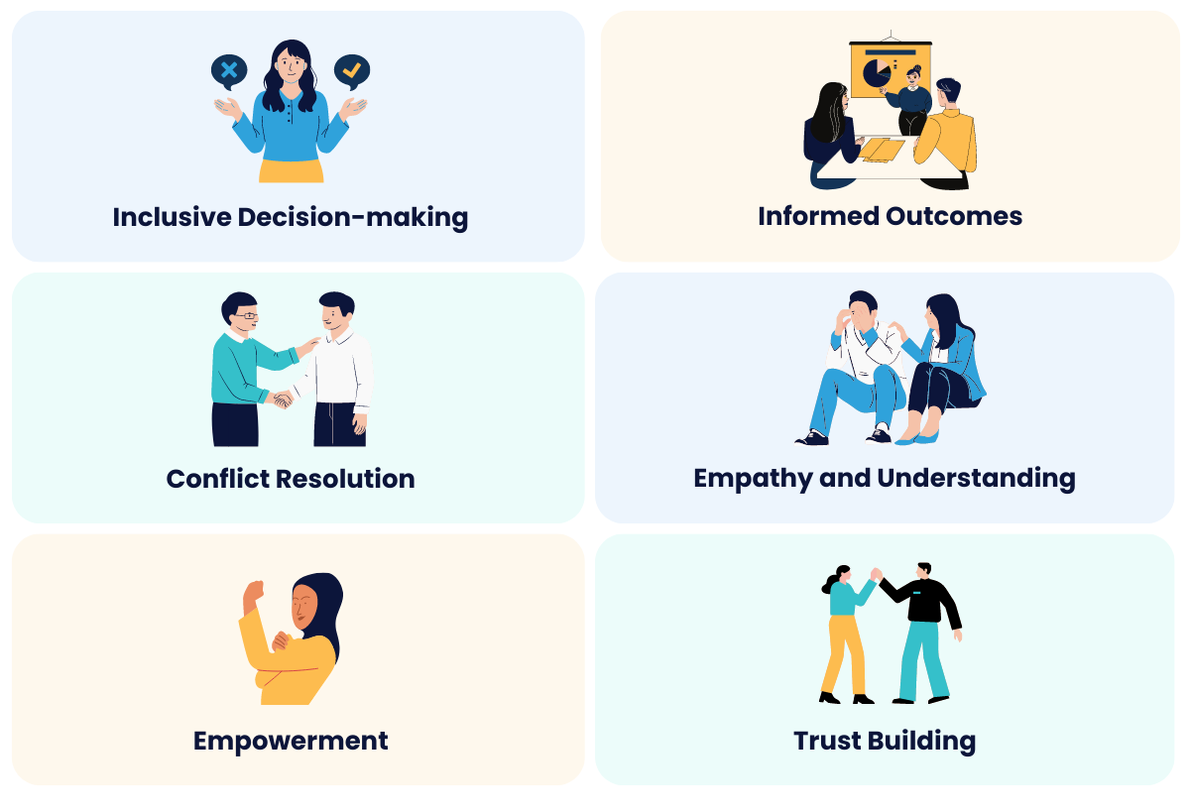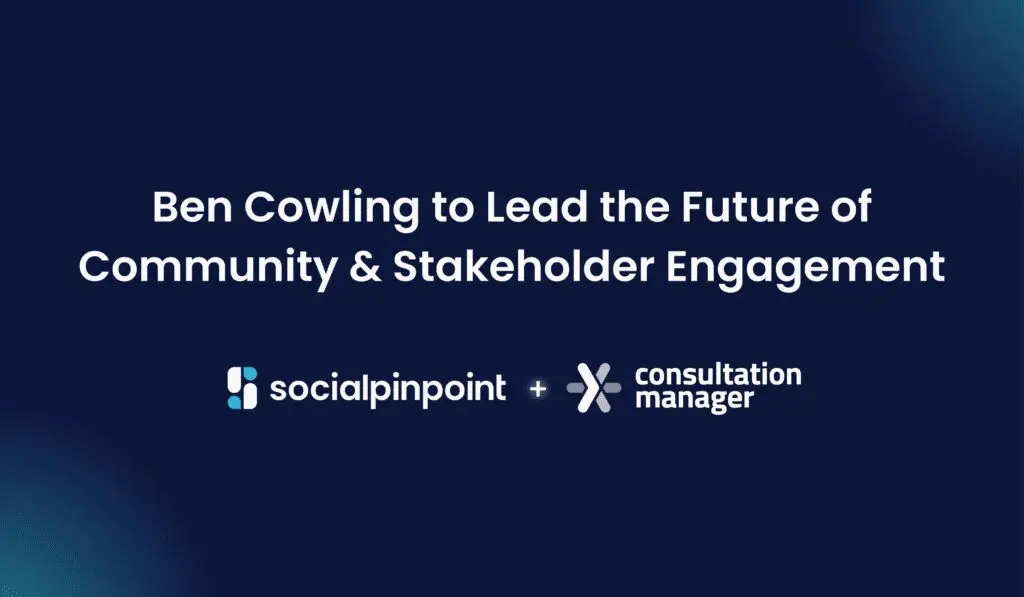Why is deliberative engagement important? Sometimes, people in a community are silenced or overlooked, which can lead to misunderstandings and the feeling of being dismissed. That’s why including people who might have knowledge of a specific community’s needs and concerns, can be beneficial for effective decision-making processes. This is where the role of deliberative engagement comes in.
Rather than involving everyone from the public, deliberative engagement involves randomly selecting a group of everyday people that are descriptively representative of the demographics of the general population of your community.
Generally, these groups place citizens, residents, and affected individuals closer to the affairs of government by empowering them to be the voices that accurately reflect the concerns and perspectives of the wider community.
To help illustrate this, let’s consider a scenario where a community primarily consists of senior citizens.
In such cases, the council would emphasize the random selection of representatives to be those who are predominantly seniors. This prioritization will guarantee the specific needs and concerns of the demographic group residing in the community will receive effective representation and advocacy.
Deliberative engagement also operates in more private settings, such as community panels and citizens’ juries. Participants usually partake in person or through hybrid settings, such as focus groups and private meetings. These meetings allow for candid discussions, encourage open exchange of ideas, and enable representatives to authentically express the sentiments of the community in which they represent.
Ensuring the representation of selected individuals is crucial, but this can be hindered by factors like accessibility and geographic constraints. To help mitigate this, you might consider using private platforms, which only grant exclusive access to these chosen representatives. These online platforms can serve as engagement hubs, where participants can contribute their ideas and concerns, which fosters an ongoing and inclusive dialogue.

Why should you use deliberative engagement?
Now that you understand what deliberative engagement is, here are six reasons why you should be using it:
- Inclusive decision-making
- Conflict Resolution
- Empowerment
- Informed outcomes
- Trust building
- Empathy and Understanding
1. Inclusive Decision-making
Given their familiarity with the distinct needs and desires of their community, deliberative engagement enables these representatives to engage in discussions that are aligned with their community’s needs and requirements. Given their knowledge, this can help guide decision-making processes, to ensure the needs of the wider community are addressed.
2. Conflict Resolution
Representatives also have the knowledge to engage in discussions to resolve any conflict or concerns that may need to be addressed. This process ensures that these issues are not only recognized but also genuinely acknowledged and heard.
3. Informed outcomes
Engaging with representatives who possess local knowledge and diverse viewpoints can help ensure that their decisions will be based on accurate information regarding the needs and concerns of a community.
4. Empowerment
By giving representatives the opportunity to participate in decisions that impact them, they can feel a sense of ownership and responsibility for the outcomes of the decision-making process that will affect their daily lives.
5. Trust building
Actively involving stakeholders in decision-making fosters a sense of trust and transparency, as they see their input being valued and considered. This fosters a stronger relationship between communities and governing bodies.
6. Empathy and Understanding
By creating a space for organizations to genuinely hear the voices of their representatives, deliberative engagement plays a crucial role in nurturing empathy, but also a deeper understanding of the community’s diverse viewpoints and perspectives.
Deliberative engagement can help bring community members closer together by giving everyone a voice to make thoughtful decisions about their future. By encouraging open dialogue, and valuing diverse perspectives, communities are able to be a part of the decision-making process to help improve their daily well-being and to help strengthen inclusivity.












